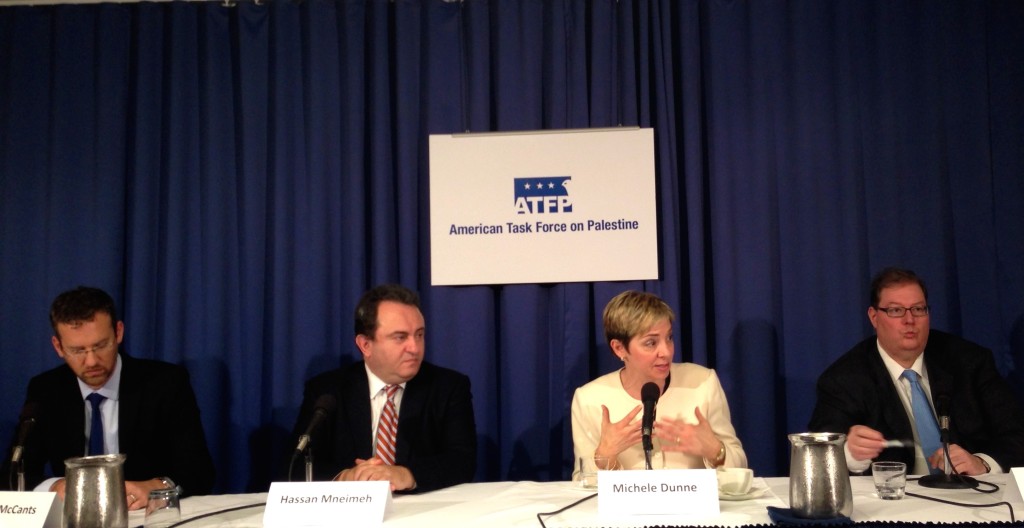
“The Muslim Brotherhood is more of a tribe, more of an identity belonging than an ideology.” (John Kuhn/MEDILL)
WASHINGTON — Nine months after former Egyptian President Mohammed Morsi was removed from office by a military coup, members of his Muslim Brotherhood party need to develop a unified message if they want to stage a comeback to power, experts said Tuesday.
But it won’t be easy.
A large number of Brotherhood leaders are imprisoned in Egypt, where the group was declared a terrorist organization last December, and the group encompasses myriad beliefs, making a unified and coherent ideology difficult to define.
“The Muslim Brotherhood is more of a tribe, more of an identity belonging than an ideology,” said Hassan Mneimneh, an expert on extremism in the Arab world with the German Marshall Fund.
The Muslim Brotherhood was founded in Egypt in 1928 as an Islamist social and political movement. It has since spread throughout the Middle East and North Africa, though it’s largest base is in Egypt . Until 2012, when Morsi was elected Egyptian president, it functioned primarily as an opposition party, which the experts said explains in part the problems the group faces today.
As an opposition, Mneimneh said, the Brotherhood didn’t need to develop an effective social, political or economic theory. But Morsi, as head of state, did not have that luxury.
The Brotherhood’s fall from power in Egypt was jarring in part because of a failure by both citizens and party leaders to realize the party’s lack of experience as a ruling party and what that would mean to its governing capacity, experts said.
“This idea that the Brotherhood was somehow going to sweep the whole region and now they’re rolled back or whatever, I think would have been a very exaggerated idea to begin with,” said Michele Dunne, a Middle East senior associate at the Carnegie Endowment for International Peace.
Now, despite the chaos in Egypt, the group has a chance for revision and development, the panelists said.
For the Brotherhood, “this is the time to try to evolve framework into something more concrete,” Mneimneh said.





